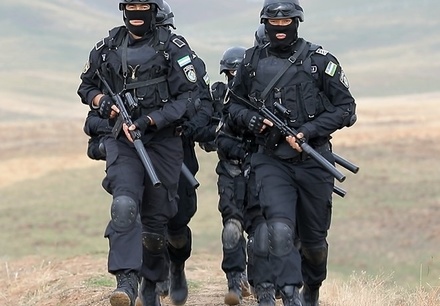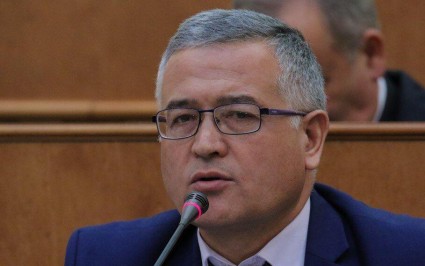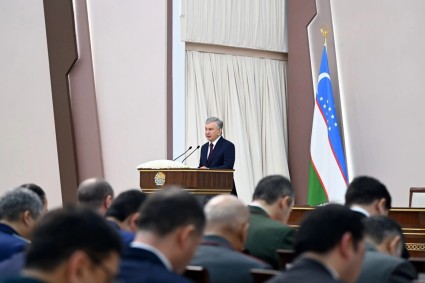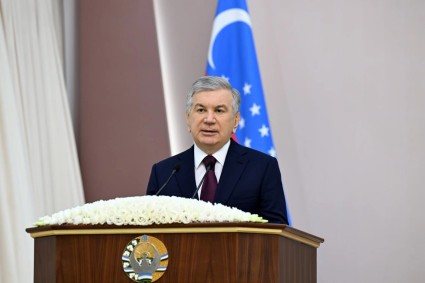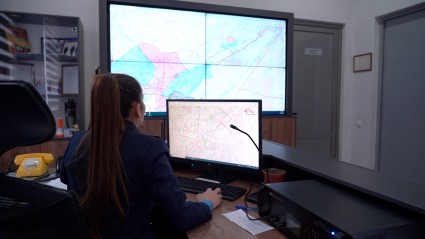The President of Uzbekistan Shavkat Mirziyoyev signed the National Guard Bill into Law on November 18, it was officially published on November 19.
The two houses of the parliament passed the Bill a year ago. "As an exception,” the Legislative Chamber passed the Bill in three readings on November 12, 2019. The Senate reviewed the document at a plenary session and approved on December 14, 2019. The document will take effect on May 20, 2021.
According to the Law, the main tasks of the National Guard are:
- protection of the rights, freedoms and legally protected interests of individuals and legal entities;
- participation in the fight against terrorism, as well as in the elimination of consequences of terrorist acts and natural and man-made emergencies;
- conduct pre-investigation probes, inquiries, opening of criminal cases and conduct of proceedings in administrative offenses;
- protection of state-owned, important, categorized and other facilities, property of individuals and legal entities;
- implementation of national policies in the field of security activities;
- prevention of offenses, including identification, elimination of the reasons behind and the conditions that contribute to them;
- protection of public order, including during mass events, rallies, meetings, demonstrations and in places of mass events;
- ensuring the legal regimen in case of state of emergency, a special period and anti-terrorist operations;
- participation in providing security for protected persons;
- holding ceremonial events at meetings of officials of foreign states, foreign delegations at a high level, during celebrations with the participation of the President of Uzbekistan;
- patrolling public places with the aim of preventing, detecting and suppressing offenses;
- special tasks in the system of territorial defense of Uzbekistan according to plans for the combat use of the Armed Forces, providing assistance to the Frontier Troops of the State Security Service in the protection of the state border of Uzbekistan.
The document notes that the National Guard servicemen work "on the basis of observing and respecting the rights, freedoms and legitimate interests of citizens."
According to the Law, the National Guard officers are entitled to demand, within their competence, to comply with laws, to show IDs, to appear and give explanations regarding identified violations of laws, and elimination of violations, with these demands being mandatory.
The National Guard officers have the right, in particular to:
- check documents of officials and citizens, carry out personal search, examination of things, vehicles and cargo;
- demand to leave the place of a crime or incident;
- enter the premises without hindrance, if necessary with damage to the locks, inspect them when pursuing persons suspected of committing crimes, or if there is reason to believe that a crime has been committed or there is a person hiding from law enforcement agencies, if delay may endanger life and health of citizens, with compensation for damage caused;
- visit government bodies and other organizations, get acquainted with the necessary documents and materials, request and receive them;
- summon citizens, officials on cases and materials reviewed by the National Guard;
- engage citizens, with their consent, to assist and remunerate for this;
- arrest people suspected of committing crimes or administrative offenses;
- demand from citizens to comply with the law, stop illegal actions, and in case of failure to comply with these requirements, apply coercive measures;
- cordon off (block) areas, living quarters, buildings and other objects and other rights.
In addition, the officers of the National Guard have the right to carry, store firearms and special equipment assigned to them. They may use physical force, special tools and firearms only in the cases and in the manner prescribed by law. For example, when repelling an attack, suppressing a crime or in case of resistance to an officer of the National Guard, arresting a criminal, releasing hostages and buildings seized, protecting protected objects and persons and blocking the movement of groups of citizens who commit illegal actions.
The use of special equipment and weapons must be preceded by a warning, except in cases where this is impossible or when delay creates a danger to the life and health of citizens.
At the same time, it is prohibited to use special equipment and weapons against pregnant women, persons with disabilities and minors, except in cases of armed resistance or a group attack that threatens the life and health of citizens.
It is also forbidden to hit a person with a rubber stick on the head, neck, clavicular area, abdomen, genitals, in the heart area, except in cases of armed resistance or a group attack that threatens life and health of citizens.
The National Guard does not have the right to use firearms among a significant crowd of citizens, if as a result of its use random persons may suffer, except in cases of preventing a terrorist act, releasing hostages and repelling an armed attack.

